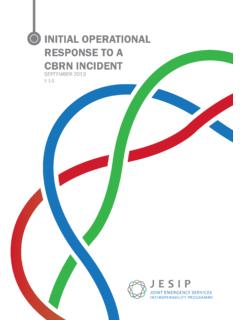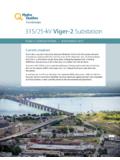Transcription of ADAPTING TO A COMPLEX WORLD - …
1 ADAPTING TO A COMPLEX WORLDS pring 2018 How are CEOs coping with this increased pace and pressure? Are today s CEOs suffi ciently prepared for this journey? What do they wish they had known before taking the job? Do they have the support network they need to succeed and adapt? As leadership advisors at Egon Zehnder, we partner closely with CEOs on this challenging journey. So rather than making assumptions, we decided to ask them these questions directly. Between November 2017 and January 2018, we conducted a global research project, surveying current chief executives from a wide cross-section of industries, countries, and corporate structures. A large number 402 of them responded, sharing their perspectives on what the job entails, the level of preparation they felt they had received, their succession planning process, and how they lead and cope in these volatile times.
2 The most compelling results and insights appear in this report, The CEO: A Personal Refl ection. This project sheds new light on what it means to be a CEO today and what these executives require in order to succeed. Kati Najipoor-Schue e Dick Pa on Global Practice Group Leaders, Egon Zehnder CEO Practice Becoming a Chief Executive Offi cer is a seminal event. It s the culmination of a career and a lifetime of advancement, the ultimate achievement for many. And yet it is as much the beginning of a new journey as it is the end of the last one. This is particularly true in the current atmosphere of disruption and volatility, extended pressure from internal and external stakeholders, and a general lack of trust in leadership.
3 The role of a CEO is more challenging and more scrutinized than it s ever been. In this turbulent era, a leader s capacity to grow and evolve is as critical to success as is meeting fi nancial targets. Indeed, if the person in the corner offi ce is not able to develop and change, he or she will fail and that failure will ripple through the entire organization. While CEOs have been studied and surveyed many times, past projects have not focused on the human side on what it actually feels like to take on the responsibility of the CEO. These studies measure priorities and strategies; they look at what behaviors successful executives exhibit and how their careers developed. But they do not focus on the critical elements of preparation and adaptation.
4 This is the untold story. ADAPTING to a COMPLEX WorldKati Najipoor-Schue e Dick Pa onHere are some of the most striking findings: Our findings are divided into three categories: Mindset for Success, Preparation and Succession, and Expectations vs. Reality. We have also highlighted gaps in the important relationship between the CEO and the Board of Directors, and significant differences in responses among CEOs from different countries. We found important distinctions between first-time and experienced CEOs and uncovered some major gaps in the preparation of internally promoted executives. We share these insights with great enthusiasm and hope that you find them as valuable as we do. To discuss the contents with a leadership advisor at Egon Zehnder, or if you would like to take your own deep, interactive dive into all of the data, please visit: Executive Summary We found that Chief Executives are, in general, quite confident in their skills and abilities.
5 At the same time, they also admit that certain parts of the role have proven more challenging and isolating than anticipated. Being CEO, they say, is a position that one can partially prepare for, but that one must also inhabit and embody to truly understand. CEO respondents shared the obstacles and the opportunities they face something that s incredibly difficult to do in a role that often requires the projection of total confidence. They wrote honestly about the ways in which they felt prepared for the role and the ways in which they have struggled. They discussed the state of succession planning in their companies and how some processes could be improved. And they generally across countries and sectors expressed the importance of taking the time to pause and reflect while in their role.
6 This need to pause and reflect, as existential as it may sound, goes straight to the heart of what it means to be a Chief Executive today. Our work as leadership advisors, along with the results of this project, underscores the difference between being a CEO meaning embodying leadership and doing the job of CEO, or executing the operational requirements of the role. These are two equally important sides of one coin. Yet they require completely different mindsets, approaches, and skills, and are sometimes at odds with each other. Our CEOs say that they have had to transform themselves while at the same time transforming the business. They are on what we call a dual journey, and navigating it correctly is critical to success.
7 When you become the final decision maker, wrote one CEO, everything changes. %of Chief Executives agreed or strongly agreed that they need the capacity to transform themselves as well as their organizationOnly % of CEOs said they turned to their Board directors for honest feedbackOnly % of internally selected CEOs said they felt fully prepared for the job vs. % of external hires %of our respondents said developing their senior leadership team was more or much more difficult than anticipated %of the CEOs surveyed said that their appointment was not part of a planned and formal succession processDemographics Our survey s 402 respondents hail from companies located in 11 countries and a wide cross-section of industries.
8 Of the respondents, 82% of them run companies with more than USD $1 billion in revenues, 30% run companies with more than $6 billion in revenues, and 10% lead companies with more than $20 billion in revenues. First-time CEOs made up 61% of the pool, and just over half (53%) were internally promoted into the CEO Role?Is this your first CEO role? Were you internally promoted or externally appointed into the CEO role?Promotion Externally promoted Internally promoted %Yes % % %NoTHEME 1 Confidence and Self-Awareness The majority of our CEO respondents believe that they have the skills to do their job; three-quarters (74%) said their prior achievements and experience prepared them to be CEO. Among experienced CEOs, 87% felt prepared; for first-timers, the number was 72%.
9 Yet at the same time, they understand that they need a particular mindset in order to be successful a continual growth approach that requires introspection, self-awareness, and the ability to adapt. It is not easy, and their open-ended responses reflect this. CEOs know and accept the fact that their jobs are extraordinarily all-consuming they are extremely well-compensated for it, after all and that they must give off an air of omniscience, particularly with certain stakeholders. Yet most leaders we surveyed were outspoken about their desire and need to work on their own personal development because they see this as a critical element of both their own success and that of their organization. Self-Transformation Is Critical The statement above is one that you d think might make some CEOs uncomfortable, given that they are supposed to embody the organization they lead, with li le room for the individual.
10 But that was not the case. Remarkably, 79% of Chief Executives agreed or strongly agreed with the statement above (in India, 93% did). Today s leaders see a link between self-transformation and organizational transformation and believe that both are required for an executive to find success in the top role. Yet they know that this is no easy task. As CEO, I need the capacity to transform myself as well as my organization. [It s about] stepping back and reflecting, said one CEO, acknowledging that I do not have all the answers and do not need to have them. My prior achievements and experience prepared me for the unique demands of the CEO roleMy biggest challenge has been acquiring the skills to lead from the topTransitioning into the role of CEO required an intense period of personal reflectionThe demands and pace of the CEO role make it hard to be my best selfAs CEO, I need the capacity to transform myself as well as my organizationCEO perspectives % % % % % % % % % %How much do you agree or disagree with the following statements?






